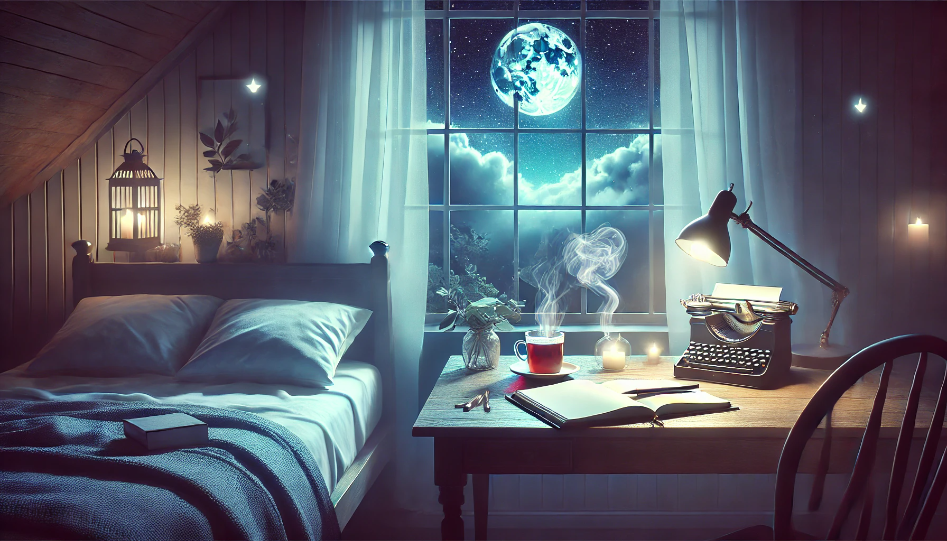Dreams and Writing: Unleashing Creativity from the Depths of the Subconscious
-
Richard Pen
| Sunday 28th of July 2024 02:28:26 PM (UTC)

Dreams have fascinated humans for centuries, offering glimpses into the mysterious realms of our subconscious. For writers, dreams can be a wellspring of inspiration, fueling creativity and enhancing storytelling. In this article, we explore the profound connection between dreams and writing, and how harnessing this connection can elevate your creative writing process.
The Power of Dreams in Creative Writing
Dreams are rich with imagery, emotions, and narratives that can spark new ideas and perspectives. They often defy logic and linear thinking, allowing writers to explore unconventional themes and storylines. Here's how dreams can enhance your writing:
1. Unlocking Unconscious Thoughts and Emotions
Dreams often reflect our deepest fears, desires, and unresolved conflicts. By paying attention to your dreams, you can uncover hidden aspects of your psyche that can add depth and authenticity to your characters and plots.
2. Stimulating Imagination and Creativity
The surreal and fantastical nature of dreams can inspire unique and imaginative story ideas. Incorporating dream-like elements into your writing can create vivid and memorable scenes that captivate readers.
3. Breaking Through Writer's Block
Writer's block can be a frustrating barrier to creativity. Dreams can provide a fresh perspective and new ideas, helping you to overcome creative obstacles and reignite your passion for writing.
4. Exploring Symbolism and Metaphor
Dreams are often rich in symbolism and metaphor. Analyzing the symbols in your dreams can lead to deeper insights and more profound themes in your writing. This can add layers of meaning to your work and engage readers on a more intellectual level.
Techniques for Using Dreams in Your Writing
To effectively incorporate dreams into your writing, consider the following techniques:
1. Keep a Dream Journal
Maintain a dream journal by your bedside and write down your dreams as soon as you wake up. Over time, this practice can help you recall dreams more vividly and recognize recurring themes or symbols that can inspire your writing.
2. Use Dreams as Writing Prompts
When you're struggling for ideas, turn to your dream journal for inspiration. Select a dream or an element from a dream and use it as a writing prompt. Let your imagination run wild and see where the dream takes your story.
3. Create Dream Sequences in Your Stories
Incorporate dream sequences into your narratives to reveal character motivations, foreshadow events, or explore alternative realities. Dream sequences can add a layer of complexity to your story and provide readers with a deeper understanding of your characters.
4. Experiment with Surrealism
Embrace the surreal and abstract qualities of dreams in your writing. Experiment with non-linear storytelling, unusual perspectives, and fantastical elements to create a dream-like atmosphere that intrigues readers.
Famous Writers Inspired by Dreams
Many renowned writers have drawn inspiration from their dreams. Here are a few notable examples:
1. Mary Shelley
The idea for Frankenstein came to Mary Shelley in a vivid dream. Her nightmare about a scientist who created life inspired one of the most enduring works of Gothic literature.
2. Robert Louis Stevenson
Robert Louis Stevenson attributed the plot of The Strange Case of Dr. Jekyll and Mr. Hyde to a dream. He claimed that the story's central idea came to him during a nightmare, which he wrote down immediately upon waking.
3. Stephen King
Stephen King often uses his dreams as a source of inspiration for his horror stories. His novel Misery was inspired by a dream in which he envisioned the plot's central conflict.
Conclusion
Dreams and writing share a profound connection that can unlock new dimensions of creativity and storytelling. By tapping into the rich imagery and emotions of your dreams, you can enhance your writing process and create more compelling and imaginative works. Keep a dream journal, use dreams as writing prompts, and don't be afraid to explore the surreal and fantastical elements of your subconscious. Embrace the power of dreams and let them guide you on your creative journey.
Harnessing the power of your dreams can transform your writing, making it more vibrant, original, and deeply resonant. For an example of a story inspired by the dream world, check out The Painter's Dreamscape: A Fantasy Adventure of Art and Imagination. So, the next time you wake up from a dream, take a moment to reflect on its potential to inspire your next literary masterpiece.
Start the conversation
Become a member of TxtTale to start commenting.
Already a member?
